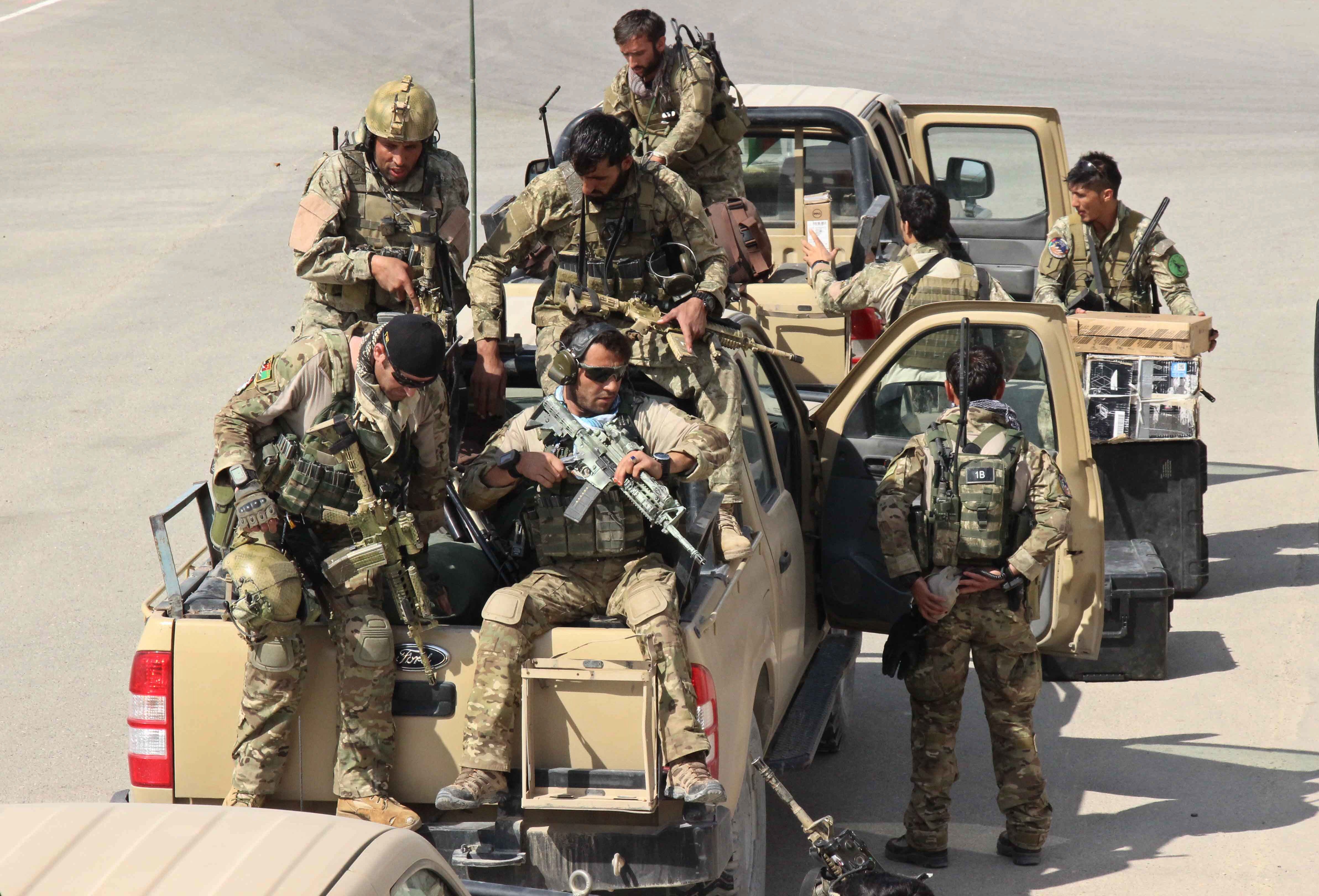The U.S. has launched a second airstrike a day after Kunduz City fell to the Taliban.
"US forces conducted an airstrike in the vicinity of the Kunduz airport at approximately 11:30pm local time, 29 September, against individuals threatening the force," Army Col. Brian Tribus, a spokesman for U.S. Forces in Afghanistan, said in an email.
Tribus did not have any further details on the airstrike. A Twitter account purportedly belonging to the Afghan National Directorate of Security claimed that the shadow governor of Kunduz and members of the terrorist organization Lashkar-e-Taiba had been were killed in an airstrike coordinate by the Afghan intelligence service.
Earlier on Tuesday, a U.S. fixed-wing aircraft launched a "force protection strike" at 9:15 a.m. local time "to eliminate a threat to coalition forces in the area who are advising and assisting Afghan forces operating in Kunduz," Tribus said.
On Monday, The Long War Journal military blog posted video and pictures purportedly showing Taliban fighters inside Kunduz City. In the video, a man yells "Allah Akbar" as the Taliban's white flag is raised over the city. Shortly afterward, Taliban militants celebrate by firing their weapons.
Following media reports of Kunduz' fall, the U.S. Embassy in Kabul issued a warning to U.S. citizens in Afghanistan on Tuesday.
"The security situation in Afghanistan is extremely unstable, and the threat to all U.S. citizens in Afghanistan remains critical," according to a statement on the embassy's website. "U.S. citizens currently visiting or residing in Afghanistan may wish to consider departing.
"The Embassy strongly urges U.S. citizens who decide to remain in Afghanistan to review your personal security plans, take appropriate steps to enhance your personal safety, remain aware of your surroundings, monitor local media for updates, and maintain a high level of vigilance."
Roughly 10 months after NATO's combat mission formally ended, the Taliban have captured large swathes of Afghanistan. Tuesday's airstrike marked the second time in as many months that U.S. airpower has been was brought to bear against the Taliban. In August, the U.S. launched 24 airstrikes in the Musa Qala district of Helmand province to help Afghan security forces.

Afghan special forces arrive, as they launch a counteroffensive to retake the city from Taliban insurgents, in Kunduz on Sep. 29, 2015.
Photo Credit: NASIR WAQIF, AFP/Getty Images
"Coalition forces continue to train, advise and assist the Afghan National Defense and Security Forces in accordance with the Resolute Support mission," Tribus said.
Afghan President Ashraf Ghani said on Afghan television on Tuesday that reinforcements had been dispatched to retake Kunduz, including an Afghan army battalion and special operations forces. The operation is being led by Afghan Brig. Gen. Abdul Hameed, commander of 209th Army Corps.
"The operations for retaking the city is underway, we are making progress now, more details will follow shortly," Sediq Seddiqi, a spokesman for the Afghan interior ministry, told Military Times. "Many terrorists killed according to initial reports."
But Bill Roggio, editor of The Long War Journal, said the Afghan security forces need to decide whether to defend northern or southern Afghanistan because they can't do both at the same time. If the Afghan military tries to contain the Taliban in the north, Roggio expects the Taliban to take Tarin Kot and Lashkar Gah in the south.
"The Afghan security forces just aren't capable," Roggio told Military Times. "They don't have the air support, they don't have the logistics, but I think most importantly they don't have the fighting spirit that the Taliban has."




